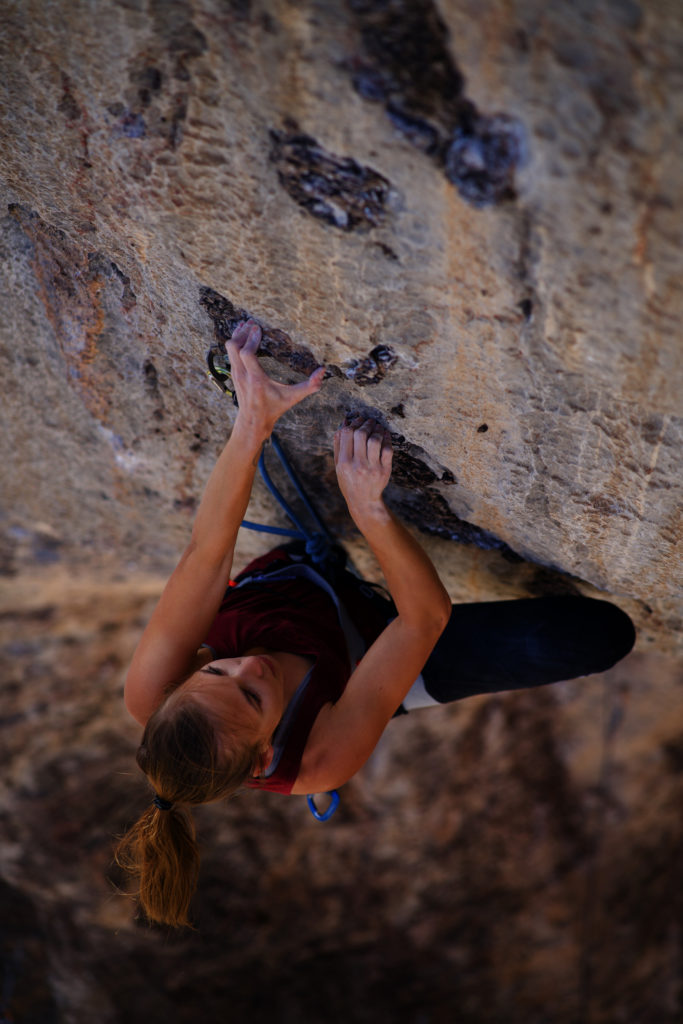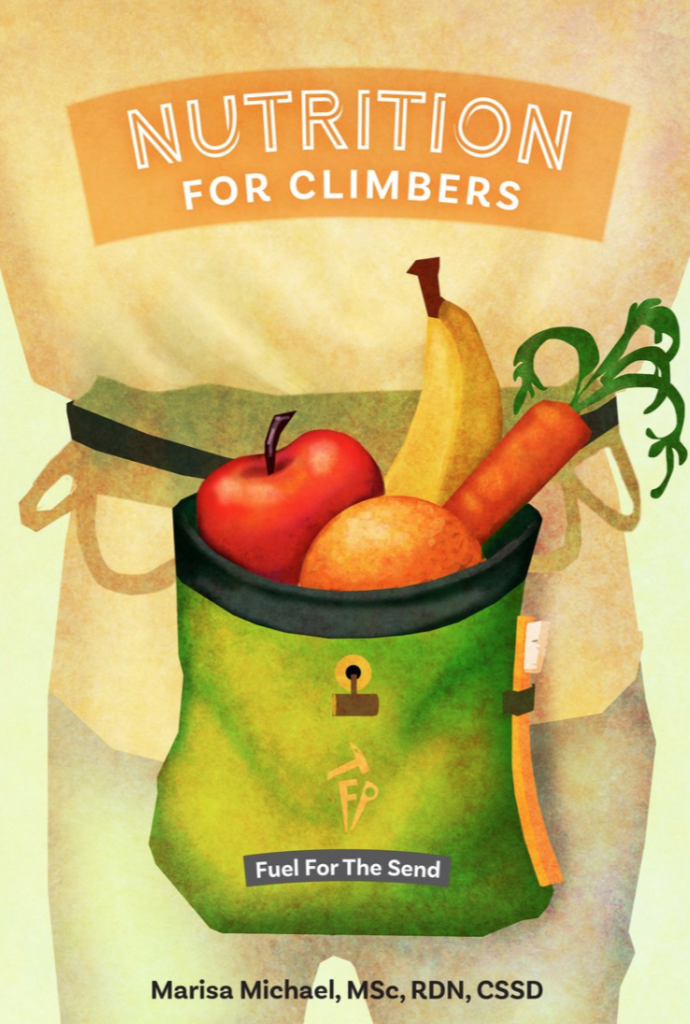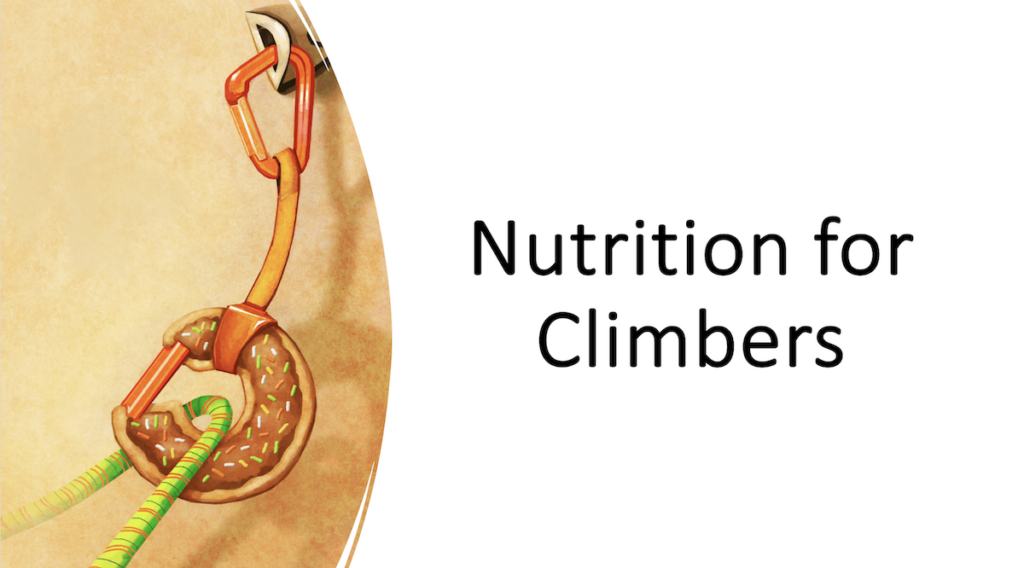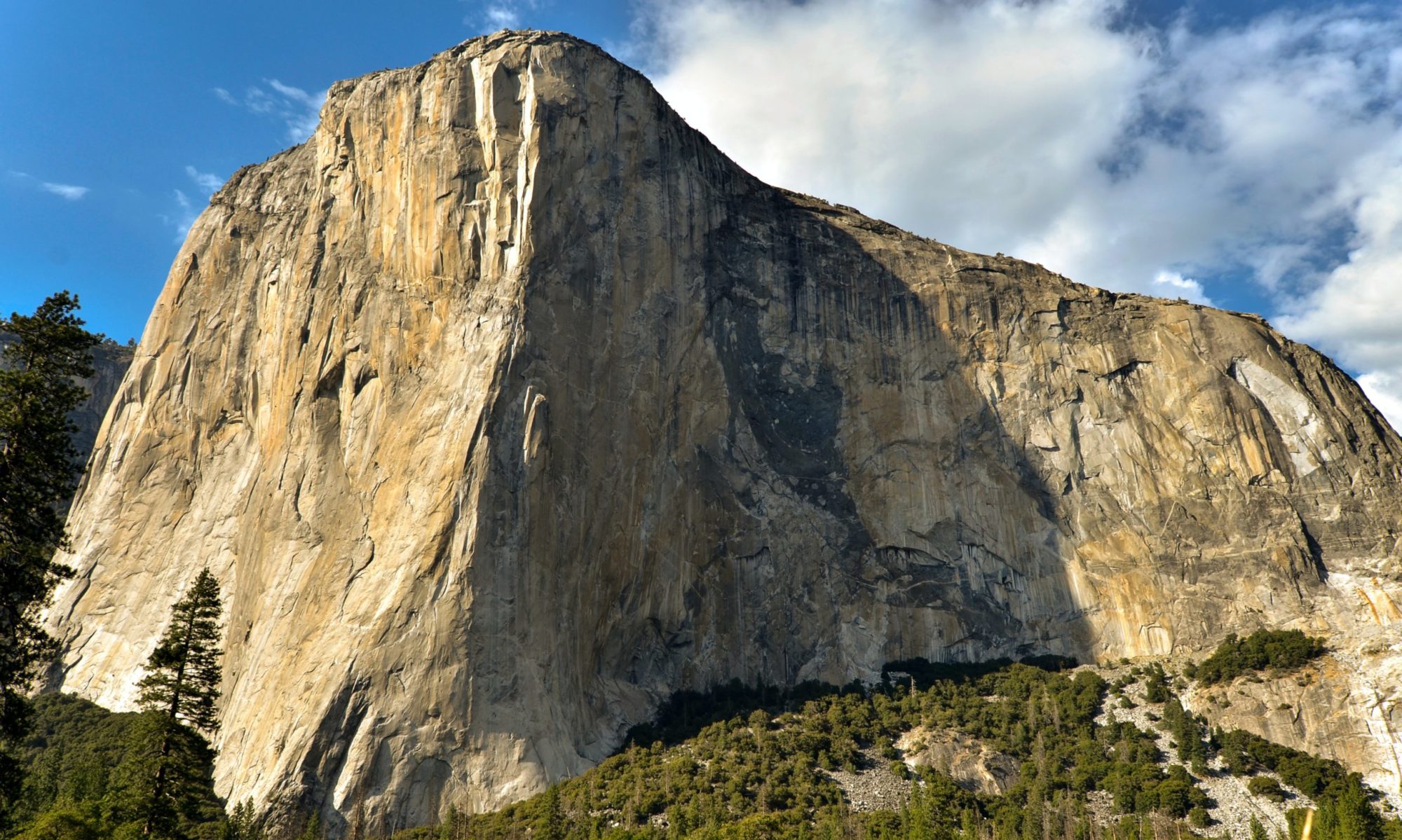Welcome to this Q&A! We wanted to take a different approach for this blog post, so we did an interview with Shaina Savoy, who is a rockstar climber (in my humble opinion), nutritionist-in-the-making, and overall interesting person. She does all the social media content for TrainingBeta as well. She was kind enough to take some time out of her day to answer a few questions for this blog. I hope you enjoy! ~Marisa Michael

Photo credit Jonathan Siegrist.
Marisa: What is your current project you’re working on?
Shaina: Currently, my project is school! My boyfriend and I live in Vegas, and left July 2nd to escape the heat and do some climbing in Colorado. I’ve sent a couple routes that were lower-hanging fruit, and it has been super fun!
Unfortunately, he got too much air at the bike park the other week, crashed, and tore his AC ligament. So, we’re hanging out at his parents’ house in Boulder while he’s in recovery mode and I’m taking advantage of the free WIFI and comfortable home environment to buckle down on some work. We’re hoping he’s recovered enough to head to the east coast in October.
We just purchased a Four Wheel Camper slide-in for our truck, and we’re REALLY excited to put it to use for the season! We will hit up Rumney, the Red, the New, Chattanooga and then see my family in Atlanta for Christmas. I’m hoping to put down some 13b’s & c’s while we’re out there!
Marisa: What made you interested in studying nutrition?
Shaina: A career in nutrition interested me for a couple reasons. In high school I struggled with disordered eating. I was very uneducated about nutrition and how our bodies functioned, and I thought I was just trying to be ‘healthy’.
Furthermore, I’ve been vegetarian/vegan for almost 10 years now. In the beginning, I was a super unhealthy vegetarian. Again, stemming from a general lack of knowledge and education about food/health. Funny enough, I started following nutrition-related Instagram accounts, and began to learn more and more about how different foods nourish my body. This sparked a desire to treat my body with care, respect, and abundance, rather than negligence and deprivation. Thus began the journey to be kinder to my body and heal my relationship with food.
When I began climbing, I noticed how fatigued and weak I felt on the days I wasn’t nourishing myself enough or the right way. When I started projecting harder routes, I could just tell energetically when I hadn’t properly nourished my body. Those days I performed horribly. On the days that I fed and nourished my body, I performed SO much better, my energy levels were amazing, my mood was better, and my mental clarity improved significantly. It’s amazing to know and experience how functioning in a well-fed & nourished body feels, and I want other people to know what that feels like too.
Whether they are a victim of disordered eating, or they don’t know how to nourish their bodies, or if they have health conditions preventing them from feeling their best — I want everybody to live in health & happiness, because that’s what they deserve, and that’s what their bodies deserve. Our bodies love us more than anything or anyone, and they work so hard to help us succeed, thrive, and flourish. They only want the best for us, and it’s time we all want the best for our bodies).
Sometimes I feel like I have too many thoughts surrounding how food, body image, and disordered eating relates to climbing. Haha! There is a lot to unpack here. As I mentioned above, I’ve had my battles with disordered eating, and in all honestly, sometimes I still struggle with negative body image. I wasn’t climbing for very long until I began dating Jonathan, who is a full-time professional climber, and climbing with other pros because of him. I think one of my first times truly sport climbing outside was with Jonathan and Alex Honnold! I was projecting a 5.12a while they were sending 5.14s. So you can imagine how that might have skewed my perception of rock climbing.
Jonathan and I have this conversation a LOT when I’m hard on myself about my climbing performance. While I attribute climbing with people who send much harder than me with success in my own performance because I have learned so much from climbing with those who are stronger than me, I’ve definitely battled with comparison and negative thoughts about how my body relates to my performance. I grew up as a soccer player and that seemed to shape my body quite a bit early on, so I’ve never felt like I really fit the ‘climber body’ mold, per se. There is definitely a sort of climber-body elitism that exists within our sport, whether people like to admit it or not.
We talk about weight frequently, almost casually, and we often let that dictate how we’re going to perform that day before we even touch the wall. I feel like a lot of us climbers take this sport/hobby SO seriously, and we all seemingly really care about our performance, so it can feel hard not to fall victim to the comparison game or treat our bodies as though they are this empty, inferior vessel only worthy of kindness when we succeed or we’re at our thinnest.
When I learned that when I nourished my body and gave it REST to recover (I think over-exercising & rest/recovery play a huge part and are VERY under-represented in this narrative), I would find more success in climbing, and this helped propel a positive body image and desire to let go of the narrative that thinness is the key to success in climbing. It’s just not the truth.
We are self-sabotaging our health AND our performance when we aren’t caring for and nourishing our bodies! I’ve seen this topic being talked about a little more openly over social media, but I still don’t think it’s getting the light it deserves. Re-writing the narrative that thinness = climbing success is long-overdue… I really appreciate the resources you have made available on this topic, and the topic of intuitive eating and emotional eating. They are invaluable.
I will also mention that the book “The Body is Not an Apology” was completely life changing for me. It has nothing to do with climbing or performance. However, it’s the only book I’ve read that has made a long-lasting impact on how I perceive my body and the bodies around me. Highly recommend.
Marisa: Where do you see the sport of climbing in the next five years?
Shaina: I’m not entirely sure to be honest. Things have proven to be less predictable than I thought lately! My hope is that the sport we love so much can grow in a way that caters to the inclusion, equity and success of more Black, Indigenous and other people of color, as well as our LGBTQ community.
I hope that we can continue to uproot and dismantle all of the racist/oppressive behaviors we have perpetuated in our community and create a welcoming environment for everyone across all intersections. We need to commit to creating a SAFE outdoor space that is accessible for every member of our community.
This revolution is going to take a lot of time and work, but my hope is that everyone remains committed in this fight and that in five years, we’ve made some successful, impactful strides that result in lifelong changes.
Marisa: What is your favorite crag snack, or pre- or post-climbing food?
Shaina: I love this question because I LOVE talking about food so I’m going to list all three! My favorite crag snack in the world is a baked Japanese sweet potato. The ones with the purple-ish skin and white flesh. They seriously taste like cake. For a pre-climbing breakfast, I love a thick stack of vegan pancakes with banana, almond butter, hemp seeds, and maple syrup. For a post-climbing meal, I honestly just love a grain bowl with tempeh, a bunch of different veggies, and a delicious sauce of some sort! My current favorite is a forbidden rice bowl with a miso dressing! YUM.

Want to learn more? Check out our on-demand masterclass Nutrition for Climbers, or our book Nutrition for Climbers: Fuel for the Send.

